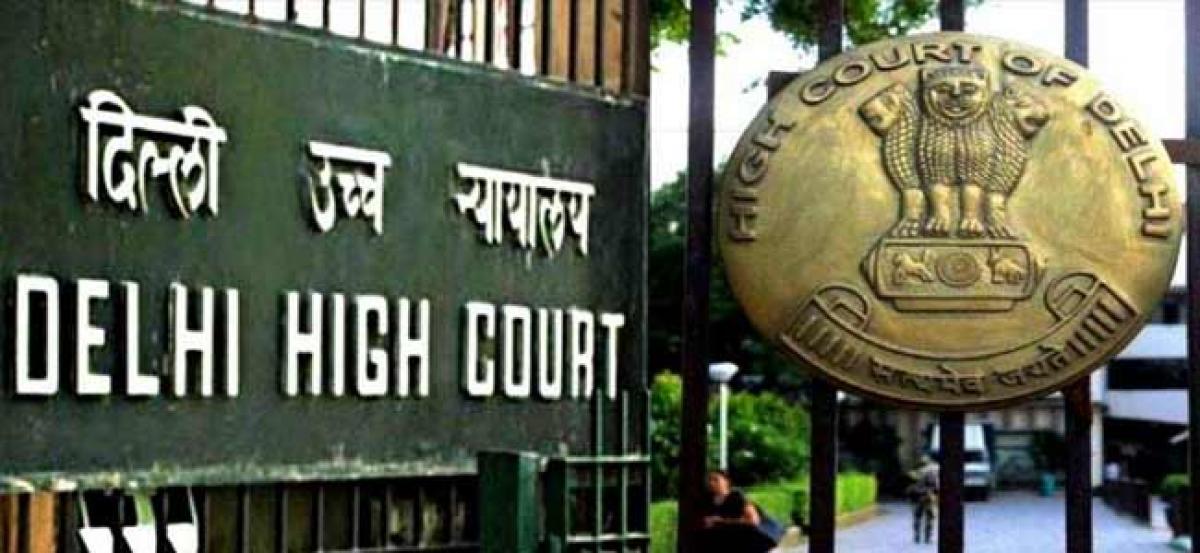Live
- DEO suspends teacher accused of sexual assault
- PM ‘cursing’ Congress out of despair: Maharashtra Cong Chief
- Applications are invited for Junior Colleges Scheme District Scheduled Castes Development Officer Ramlal
- A nomination was filed on the second day for the Nagar Kurnool parliamentary seat
- SP Gaikwad inspected the Telangana Amarnath Saleswaram Jatara yatra arrangements
- Rahul Gandhi's decision to contest from Wayanad shows 'lack of confidence': BJP President Nadda
- IPL 2024: Delhi bowlers will go after all of SRH’s top-order batters, says head coach Ricky Ponting
- At Amroha rally, PM Modi sends out ‘meaningful’ message for Muslims and Hindus
- Tripura records highest 79.83 pc voter turnout in Northeast
- The government has to clear the confusion
Just In

The Delhi High Court has questioned the manner in which cases of serious nature like rape, molestation and economic fraud were being referred for mediation by trial courts
New Delhi: The Delhi High Court has questioned the manner in which cases of serious nature like rape, molestation and economic fraud were being referred for mediation by trial courts.
Justice R K Gauba said it was questionable as to whether in cases of serious or heinous crimes, the parties should approach it seeking to quash criminal proceedings against them on the grounds that they have arrived at a settlement. The issue of quashing of FIRs on the ground of settlement arose in two separate matters. While one involved allegations of rape, unnatural sex, outraging the modesty of a woman and criminal intimidation, the other was relaying to allegations of cheating and fraud with a private bank.
“In given facts and circumstances, it is questionable as to whether in cases of this nature, this court should be called upon to exercise inherent power under Section 482 CrPC and, if the answer to this were to be in the negative, it is also questionable as to whether such cases should at all be referred by the criminal courts to the process of mediation and, even further, as to whether the court annexed mediation centres should be entertaining matters of above nature for such 'negotiations', particularly when the process of mediation is supervised, or overseen, by judicial officers or persons trained in law,” Justice Gauba said.
The court, which has dismissed the plea to quash criminal proceedings relating to rape allegations, said the issue persists as to “whether it was advisable for those concerned with legal process to take or permit recourse to mediation, in the teeth of law, as settled by the Supreme Court which would inhibit the inherent power under Section 482 CrPC to be availed to quash such criminal proceedings in serious or heinous crimes including those reflecting 'mental depravity', as indeed, economic offences involving 'financial well-being of the State' or financial or banking institutions, affecting the public at large by 'financial or economic fraud'.” The pleas in both the cases were opposed by the counsel for the state.
In the case relating to economic fraud, the FIR was lodged on the complaint of HDFC Bank against five persons in 2003 and early this year, the accused and the bank had told the trial court that there were chances of settlement after which the matter was referred to mediation centre. In July this year, the trial court was informed that the parties have arrived at a settlement in which the accused persons paid Rs 12 lakh to the bank. The accused approached the high court seeking quashing of the FIR after the bank had said that on realisation of the money, it would not want to further proceed with the cases on their merits. The high court said the fact that 15 years have passed by and the case was still at pre-trial stage was a matter of concern. The court said the bank was in the service of public at large and deals with public money and it required inquiry as to the justifications with which the bank would agree to participate in such process of negotiated settlement in cases involving serious criminal breach of trust and cheating.
It directed that an authorised representative of the bank, who had participated in the mediation process, shall remain present in the court and explain his authorisation for such purposes. It also asked the state to file a status report in the four cases registered in relation to the fraud and explain the reasons for delay in their adjudication as even after 15 years of filing of charge sheet, charges have not been framed. “The Chief Metropolitan Magistrate, New Delhi is directed to send a report as to what have been the reasons for delay in the progress of the cases after filing of the charge sheet in December, 2003,” the high court said, adding scrupulous compliance shall be made by all concerned and no default shall be acceptable.

© 2024 Hyderabad Media House Limited/The Hans India. All rights reserved. Powered by hocalwire.com







